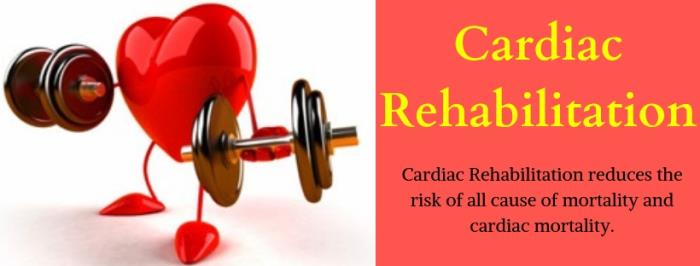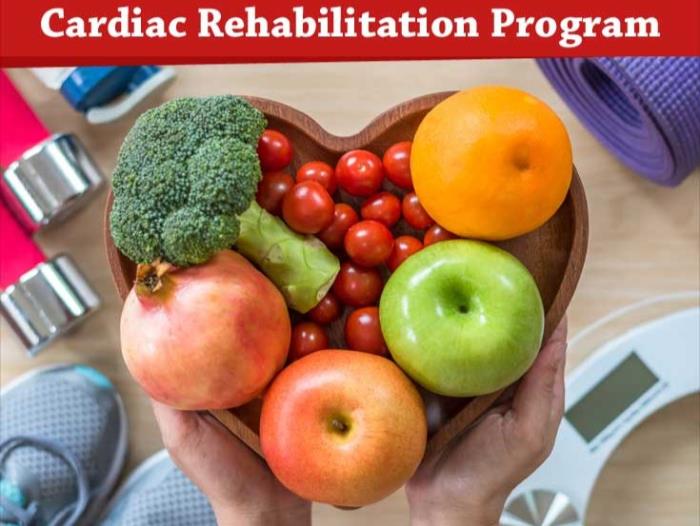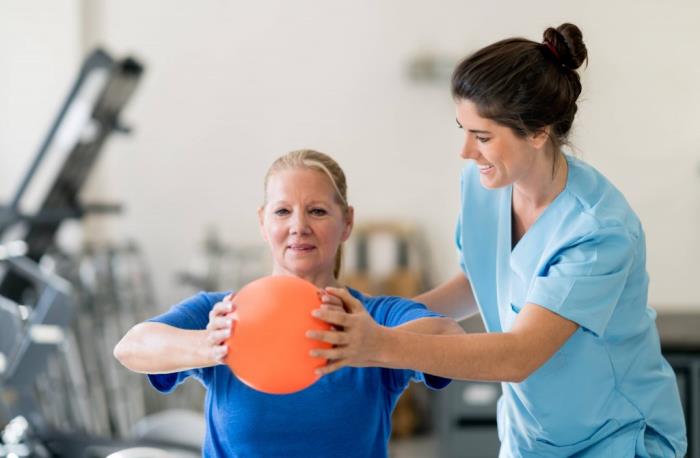Cardiac rehabilitation (rehab) is a structured program designed to support individuals recovering from heart-related conditions, such as heart attacks, heart surgeries, or chronic heart disease. It combines medical evaluation, prescribed exercise, education on heart-healthy living, and counseling to help patients regain their strength and improve their cardiovascular health. The ultimate goal of cardiac rehabilitation is to promote a healthier lifestyle, enhance quality of life, and reduce the risk of future heart problems.
The Role of Cardiac Rehabilitation in Heart Disease Recovery
Cardiac rehabilitation plays a critical role in the recovery process for individuals with heart disease. By providing a comprehensive approach that integrates physical, emotional, and educational support, these programs help patients understand their condition and take an active role in their recovery. Participants typically work closely with a team of healthcare professionals, including cardiologists, nurses, dietitians, and exercise physiologists, who monitor their progress and make necessary adjustments to their rehabilitation plans.
Benefits of Cardiac Rehabilitation for Heart Health
Engaging in cardiac rehabilitation offers numerous benefits for heart health. Patients often experience improved exercise tolerance, reduced symptoms such as chest pain or shortness of breath, and enhanced overall physical fitness. Additionally, studies have shown that participating in a cardiac rehab program can lead to a decrease in hospital readmissions and a lower risk of future cardiac events. The program also encourages lifestyle modifications, such as smoking cessation and weight management, which contribute to better heart health in the long term.

Understanding the Components of a Cardiac Rehab Program
A cardiac rehab program typically consists of several key components that work together to support recovery. These include medical evaluations to assess heart function, supervised exercise training tailored to individual capabilities, and education on heart-healthy living. Patients also receive guidance on managing risk factors, such as hypertension and diabetes, and may participate in support groups or counseling sessions to address any emotional or psychological challenges that arise during their recovery.
Personalized Exercise Plans: Tailoring to Individual Needs
One of the cornerstones of cardiac rehabilitation is the development of personalized exercise plans. These plans are tailored to each patient's unique needs, taking into consideration their medical history, current fitness level, and personal goals. Supervised exercise sessions typically include aerobic activities, strength training, and flexibility exercises, which are gradually increased in intensity as patients progress. This individualized approach ensures that patients can safely improve their physical fitness while minimizing the risk of overexertion or injury.
Nutrition Education: Eating for Heart Health
Nutrition education is a vital component of cardiac rehabilitation, as dietary choices play a significant role in heart health. Participants learn about heart-healthy eating patterns, including the importance of fruits, vegetables, whole grains, lean proteins, and healthy fats. Education may also cover portion control, reading food labels, and understanding the impact of sodium and sugar on cardiovascular health. By incorporating these principles into their daily lives, patients can better manage their weight, lower cholesterol levels, and improve overall heart health.

Psychological Support: Addressing Mental Well-Being
Addressing psychological well-being is an essential aspect of cardiac rehabilitation. Many patients may experience anxiety, depression, or emotional distress related to their heart condition, which can affect their motivation to engage in recovery. Cardiac rehab programs often include psychological support through counseling, support groups, or stress management techniques. By fostering mental well-being, patients are better equipped to cope with the challenges of recovery, stay committed to their rehabilitation goals, and embrace a healthier lifestyle moving forward.
Risk Factor Management: Controlling Blood Pressure and Cholesterol
Managing risk factors such as blood pressure and cholesterol is vital for heart health, especially after cardiac events like heart bypass surgery. High blood pressure can strain the heart and blood vessels, while elevated cholesterol levels can lead to plaque buildup in arteries. Patients are encouraged to adopt a heart-healthy diet, engage in regular physical activity, and adhere to prescribed medications to keep these factors in check. Regular monitoring and consultation with healthcare professionals are crucial for maintaining optimal levels and reducing the risk of future cardiovascular issues.
Monitoring Progress: Importance of Regular Assessments
Regular assessments are a fundamental component of effective cardiac care. Monitoring progress through follow-up appointments, blood tests, and physical evaluations helps healthcare providers track improvements and identify any potential issues early. This proactive approach ensures that patients remain on the right path toward recovery and can adjust their treatment plans as necessary. Continuous evaluation fosters a better understanding of individual health needs and encourages patient engagement in their own care.

How Cardiac Rehabilitation Reduces Hospital Readmissions
Cardiac rehabilitation plays a significant role in reducing hospital readmissions for patients recovering from heart conditions. By providing structured support, education, and supervised exercise, cardiac rehab helps patients adopt healthier lifestyles and manage their conditions more effectively. Studies have shown that participants in cardiac rehabilitation programs experience lower rates of readmission, primarily due to improved self-management skills and adherence to medication regimens. This reduction in readmissions not only benefits patients but also alleviates the burden on healthcare systems.
The Impact of Cardiac Rehab on Quality of Life
Participating in cardiac rehabilitation has a profound impact on quality of life for many patients. The program focuses not only on physical recovery but also on emotional and social well-being. Patients often report increased energy levels, enhanced mood, and a greater sense of purpose as they engage in healthy activities and connect with others facing similar challenges. By fostering a supportive environment, cardiac rehab encourages patients to set and achieve personal health goals, leading to a more fulfilling and active lifestyle.
Long-Term Health Outcomes: Studies and Statistics
Research consistently demonstrates that cardiac rehabilitation significantly improves long-term health outcomes for patients with heart conditions. Studies indicate that individuals who participate in structured rehab programs have better exercise tolerance, lower rates of depression, and improved cholesterol and blood pressure levels compared to those who do not engage in rehab. Furthermore, evidence suggests that cardiac rehab can lead to increased survival rates and reduced incidence of future cardiac events, making it a critical component of post-heart event care.
Cardiac Rehabilitation for Specific Conditions: Angina, Bypass, and More
Cardiac rehabilitation is tailored to meet the needs of patients with various heart conditions, including angina, heart bypass surgery, and heart attacks. Each program is designed to address the unique challenges associated with specific conditions, ensuring that patients receive appropriate care and guidance. For example, those recovering from bypass surgery may focus on regaining strength and endurance, while patients with angina may learn to manage symptoms through lifestyle changes and exercise. This individualized approach enhances the effectiveness of rehabilitation efforts and promotes better recovery.
The Role of Family Support in Cardiac Rehabilitation Success
Family support is crucial for the success of cardiac rehabilitation. Encouragement and involvement from loved ones can motivate patients to adhere to their rehabilitation programs and adopt healthier lifestyles. Families can assist by participating in educational sessions, engaging in physical activities together, and providing emotional support during challenging times. A strong support system fosters a positive environment that encourages patients to prioritize their health and remain committed to their rehabilitation journey.
Overcoming Barriers to Participation in Cardiac Rehab
Despite the benefits of cardiac rehabilitation, some patients face barriers to participation. These barriers may include lack of awareness, transportation issues, financial constraints, or fear of exercise. Healthcare providers play an essential role in identifying and addressing these challenges. Strategies such as providing education about the importance of rehab, offering flexible scheduling, and exploring financial assistance options can help overcome obstacles and encourage more patients to engage in these valuable programs.
Innovative Approaches: Telehealth and Cardiac Rehab
The rise of telehealth has introduced innovative approaches to cardiac rehabilitation, making it more accessible for patients. Remote monitoring, virtual consultations, and online exercise programs allow individuals to participate in rehab from the comfort of their homes. Telehealth options can be particularly beneficial for those with mobility issues or those living in rural areas. By leveraging technology, healthcare providers can extend the reach of cardiac rehab programs and support patients in their recovery journeys more effectively.
Transitioning from Cardiac Rehab to Independent Maintenance
Successfully transitioning from cardiac rehabilitation to independent maintenance is a critical step in sustaining heart health. Patients are encouraged to continue their exercise routines, maintain healthy dietary practices, and regularly monitor their health indicators after completing their rehab programs. Ongoing education about self-management and lifestyle choices empowers individuals to take control of their health. Support groups and community resources can also aid in this transition, providing motivation and accountability as patients move forward.
Engaging in Community Support for Long-Term Health
Engaging in community support is vital for maintaining long-term health after cardiac rehabilitation. Patients can benefit from participating in local health events, support groups, and wellness programs that promote heart-healthy living. Connecting with others who share similar experiences fosters a sense of belonging and can enhance motivation to stick with lifestyle changes. Community involvement also provides opportunities for continued education and access to resources that support ongoing health management.
Success Stories: Testimonials from Cardiac Rehab Participants
Hearing success stories from cardiac rehab participants can be incredibly inspiring for those considering or currently undergoing rehabilitation. Many individuals share how the program has transformed their lives, leading to improved physical fitness, enhanced emotional well-being, and a renewed sense of purpose. Testimonials often highlight the importance of support from healthcare providers, family, and fellow participants, demonstrating the collective effort involved in the recovery process. These stories serve as powerful reminders of the potential for positive change and motivate others to embrace their rehabilitation journeys.
Life After Heart Bypass Surgery: What to Expect
Get insights into life after heart bypass surgery. This section outlines the typical recovery process, emotional adjustments, and the lifestyle changes necessary to maintain heart health, providing patients with realistic expectations for their post-operative journey.
Latest Innovations in Heart Bypass Surgery Techniques
Stay informed about the latest advancements in heart bypass surgery techniques. This section highlights new technologies and methodologies that improve surgical precision, reduce recovery time, and enhance overall patient outcomes, reflecting the evolving landscape of cardiac care.
Conclusion: Embracing a Heart-Healthy Lifestyle Through Rehabilitation
Embracing a heart-healthy lifestyle through cardiac rehabilitation is essential for individuals recovering from heart events. The combination of education, exercise, and support equips patients with the tools they need to manage their health effectively. By participating in rehab and making lasting lifestyle changes, individuals can significantly improve their quality of life and reduce the risk of future heart problems. The journey may be challenging, but with determination and the right resources, a healthier future is within reach.
Best Heart Bypass Surgery in India
The Best Heart Bypass Surgery in India is a critical procedure that reroutes blood flow around blocked arteries, improving blood supply to the heart and enhancing patient health and quality of life.
Best Heart Bypass Surgery Hospitals in India
The Best Heart Bypass Surgery Hospitals in India feature advanced medical facilities and expert cardiology teams, providing comprehensive care from diagnosis to post-surgery recovery for optimal outcomes.
Heart Bypass Surgery Cost in India
The Heart Bypass Surgery Cost in India is competitively priced, ensuring patients receive high-quality treatment with transparent pricing and affordable care options.
Best Heart Bypass Surgeons in India
The Best Heart Bypass Surgeons in India are skilled and experienced professionals, committed to delivering personalized care and achieving the best possible surgical outcomes for heart patients.
FAQ
What is the purpose of cardiac rehabilitation?
The purpose of cardiac rehabilitation is to support individuals recovering from heart conditions through a structured program that includes exercise, education, and lifestyle modification to improve overall heart health.
How does cardiac rehabilitation improve long-term heart health?
Cardiac rehabilitation improves long-term heart health by helping patients adopt healthier lifestyles, manage risk factors, and reduce the likelihood of future cardiac events through supervised exercise and education.
What can I expect from a typical cardiac rehab program?
A typical cardiac rehab program includes initial assessments, personalized exercise plans, nutrition counseling, education about heart health, and ongoing support from healthcare professionals.
Are there specific exercises recommended during cardiac rehab?
Yes, cardiac rehabilitation typically includes a variety of exercises tailored to individual abilities, focusing on aerobic conditioning, strength training, and flexibility to enhance overall cardiovascular fitness.
How long does cardiac rehabilitation last, and how often do I need to attend?
Cardiac rehabilitation programs generally last 12 to 36 weeks, with participants attending sessions two to three times per week, depending on their specific program and recovery needs.
Explore the Best Cardiologists and Cardiac Hospitals in India
When it comes to heart health, choosing the right specialist and hospital is crucial. We�ve compiled a list of top cardiologists and cardiac hospitals across India to help you find the best care available.
Top Cardiologists and Cardiac Surgeons in Major Cities
Discover the leading heart specialists in India�s major cities:
Conclusion
Your heart deserves the best care. Explore the links above to learn more about the top cardiologists and cardiac hospitals in India.
Related Resources
At ArogyaJivan, we strive to provide you with the most accurate and up-to-date information to help you make informed decisions about your healthcare. Whether you are searching for the Best Doctors in India or the Top 5 Doctors in India, our resources are tailored to guide you through your medical journey. Additionally, our comprehensive guides on the Best Hospitals in India and the Top 5 Hospitals in India will assist you in choosing the right healthcare facility for your needs. Explore these resources to ensure you receive the best possible care.